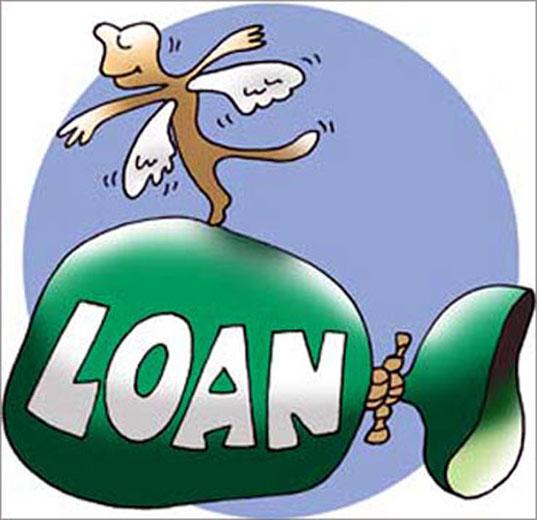Photographs: Uttam Ghosh/Rediff Priya Nair in New Delhi
With the difference between lending rates of banks and NBFCs narrowing, base your choice on urgency of requirement.
While shopping for an LED television, you find one for Rs 50,000. The store has a tie-up with a non-banking financial company (NBFC) that offers a one-year personal loan at 24 per cent, which can be approved on the spot.
You could walk out of the store with your TV in less than an hour. If a bank offers a loan at 21 per cent, which could help you save about Rs 85 on your equated monthly instalment (EMI), will you wait for three-four days to purchase the TV? Maybe not!
Now, consider you want a loan of Rs 3 lakh for a foreign holiday. A bank offers a personal loan for three years at 21 per cent, while an NBFC charges 24 per cent.
The difference in the EMIs is about Rs 500. Through three years, the difference is about Rs 18,000. Will you opt for the bank loan, even if it takes slightly longer to be approved? Maybe.
...
Personal loans: Should you go to banks or NBFCs?
Photographs: Uttam Ghosh/Rediff
Banks have a better distribution network, thus offering customers, even in rural locations, the convenience of obtaining a loan from the nearest branch, points out Biju Pillai, senior executive vice-president and business head, personal loan, HDFC Bank. In addition, the turnaround time for banks is very good.
The perception that NBFCs charge more interest rates than banks isn't entirely true, says Ashish Panchal, business head (personal loans and credit cards), Bajaj Finance. "All lenders have a range of interest rates and this is based on the risk involved. This differs, depending on the segment of customers," he says.
The most important factor affecting the lending rate is the cost of funds or the rate at which the lender is able to raise resources to lend. This is higher for NBFCs, as these entities don't have access to retail deposits such as savings or current account deposits.
Their source of funds is the money they raise from the market or borrow from banks. Banks, on the other hand, are able to offer lower rates because they have access to retail deposits.
...
Personal loans: Should you go to banks or NBFCs?
Photographs: Uttam Ghosh/Rediff
In case of personal loans, a customer's risk profile also contributes to the rate, as these are unsecured loans.
Roongta agrees it is a myth that banks are cheaper. "In some cases, NBFCs offer very competitive rates. The point is if the borrower can afford to wait, why shouldn't he shop?" he asks.
Today, thanks to credit bureaus, lenders have access to customers' credit histories, which makes it possible to approve loans quickly. This allows the lender to access and verify a customer's details without intruding. For instance, Bajaj Finance can give an in-principle approval for an online loan application within five minutes, and within 25 minutes in the case of an offline loan application. The final approval is subject to verification of the documents, Panchal says.
Apart from the lending rate, other important factors are processing fees and prepayment charges. These might be huge and, in some cases, the burden could eat into the benefit of a lower loan rate. In some cases, the lender might not allow partial prepayment. So, it is important to look at these charges, too, especially if one is planning to prepay a loan, Roongta says.
...
Personal loans: Should you go to banks or NBFCs?
Photographs: Reuters
Customers must also consider factors such as distribution network and post-delivery services. For instance, if one needs help after a loan is approved, he/she can approach a call centre. This is where a bank might score over an NBFC, says Sridharan.
A non-salaried customer might find it easier to secure a loan from an NBFC compared to a bank, though this isn't always the case. "In general, it is true that a self-employed customer is riskier than a salaried one. But while dealing with customers, we do a thorough assessment of the profit-and-loss statement of the business. We keep in mind the fact that all businesses go through up-and-down cycles," Panchal says.
If you are an existing customer of a bank, securing a personal loan isn't a problem. If you aren't, but have a good repayment history, whether you are salaried or not doesn't matter. But if you don't have a good credit history, a salaried employee might be considered less risky, says Sridharan.
Pillai of HDFC Bank also agrees that NBFCs are more flexible when it comes to lending to certain segments which give them an edge.
While the underwriting will vary from bank to bank and NBFC to NBFC, for customers, the transparency shown by the lender in terms of disclosing the fees and charges are as important as the rate of interest.





article